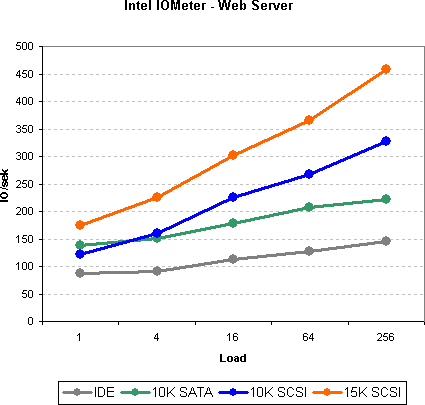BSF
Explorer
I am sure Adlon is looking at a multitude of options and is trying to compute the best that EN World can handle for a 2-3 year plan.
I had wondered about multiple servers as well. Dedicating one box to DB and another to everything else might be a significant performance upgrade. I suppose the question in that case would be one of server requirements when you split the load. Would it be possible to get two slightly lower-end servers for the same cost as one higher end?
As I said, I am sure everyone involed is doing a good job. I am not accustomed to building servers specifically to provide performance toa DB driven website. My experience with databases is usually on the back end of the enterprise. So I am accustomed to processors with large cache and plenty of disk spindles in RAID. Because of that, it seems a little odd to look at a dual disk system, though I am very happy that you are going to use mirroring to avoid a critical crash.
I had wondered about multiple servers as well. Dedicating one box to DB and another to everything else might be a significant performance upgrade. I suppose the question in that case would be one of server requirements when you split the load. Would it be possible to get two slightly lower-end servers for the same cost as one higher end?
As I said, I am sure everyone involed is doing a good job. I am not accustomed to building servers specifically to provide performance toa DB driven website. My experience with databases is usually on the back end of the enterprise. So I am accustomed to processors with large cache and plenty of disk spindles in RAID. Because of that, it seems a little odd to look at a dual disk system, though I am very happy that you are going to use mirroring to avoid a critical crash.




